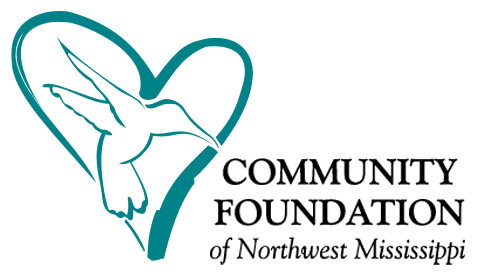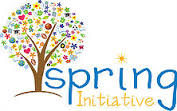
A free, daily after-school program downtown is helping students improve their reading levels.
Spring Initiative is a nonprofit program for students who can benefit the most from additional help, said Bianca Zaharescu, who co-founded the program in 2011.
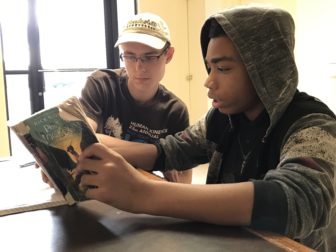
“We see our kids as being the primary agents of change,” she said.
Zaharescu said there has been an increase in the student’s reading levels, grades across all subjects and class participation.
Zaharescu said the program tracks its students’ reading levels by using Reading A to Z, which is a program that measures both vocabulary and comprehension. She noted that students who were generally graded as D or F when first evaluated by Reading A to Z are now A or B students.
“I think 82 percent of students raise two grades up,” said Anja Thiessen, co-director of Spring Initiative. “Not every single student is raising their grade, but across the board we have seen our students actually dramatically raising their grades.”

Thiessen noted that despite the improvements, most of their students are behind on their reading levels. The program’s goal over the course of a year is for students to obtain at least a year of growth. She said some students are showing two years of growth within one year.
Rachel Bouer, co-director of Big Spring – one of the three cohorts of the program, said one of the things they do to engage the students better is silent reading.
“We started with just ten minutes of silent reading every day,” Bour said, noting that now students are reading independently for about 25 minutes a day. “I think we’ve seen that they have learned how to engage with text a lot better, summarize a lot better, and work more independently in general.”
Thiessen said they empower students through educational interventions, personalized holistic support, and long-term relationships.
“The reason that they are not performing in school is because of all the different things that have happened to make them disengage in school,” said Thiessen. She said some students have gone through traumatic experiences in their life. In those cases, she said, it’s not only about their reading levels, it’s about supporting them emotionally, too.
Thiessen and Zaharescu said they think they are able to help students improve more because of the individual investment they put into each student.
“Even if a teacher very much envisions I really want to be there for each student individually, in a classroom you can’t,” said Zaharescu. “So there’s an opportunity that we have and also a commitment to individually invest in every single student.”
She said the program connects with the students’ parents, families and teachers.
Now a retired teacher, Brenda Luckett said she had two students in the program and she said she definitely saw improvements in her students’ reading levels and behavior.
Luckett recalled how one of her students reading level grew extensively. She said her student’s reading level improved because her behavior improved. Luckett said Spring Initiative would report back to her if her student wasn’t behaving properly, and she said that “really helped us” with the student’s progress.
Luckett said Spring Initiative helped to expose her student to things she never would have been exposed to such as going water rafting and taking trips to Illinois and the University of Mississippi. Because of this, Luckett said her student was more engaged than ever before.
“Exposure to things made her want to read more and also made her ask a lot of questions,” said Luckett.
Luckett said her student was able to express herself better because of sharing time which is a portion at the beginning and end of each session of the program where students share their ups and downs of the day and what they hope to accomplish throughout the day.
“It [Spring Initiative] really turned her around,” said Luckett. “Her behavior was different. Her perspective on life was different. It helped her blossom.”
After teaching third and fourth grade special education self-contained classes at George H. Oliver Elementary School for 20 years, Luckett takes time to volunteer at the program when she can.
Alena Welch, fifth and sixth grade Spanish teacher at Oakhurst Intermediate Academy, said her students in the program have improved as well. She said she has seen an increase in her students’ academic achievements, school attendance, and relationship with peers and instructors.
Welch said the program has allowed her students the opportunity to discuss more during her class time.
“Spring has provided my students with the skills and practice necessary to effectively process interpersonal conflict, genuinely empathize with others, articulate their emotions, and respond productively to feedback,” said Welch.
Since joining the program, students have become more positive, confident, and engaged, according to Zaharescu. Despite the different challenges, Zaharescu said seeing the incremental changes daily are the coolest part about the program.
“It’s like there’s those victories that you get to see literally every day in different ways whether it’s somebody who’s able to open up or connect more with the other students or whether it’s that they really are willing to put themselves out there and raise their hands to participate,” said Zaharescu.
So far, Spring Initiative had seven students that have been accepted to Piney Woods Boarding School, a 100 percent high school graduation rate, and 100 percent of students enrolled in college.
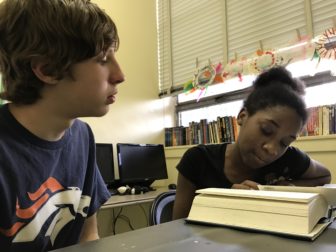
In regards to how the program helps students reach their full potential, Marshall Allston-Yeagle, intern for Big Spring, said “It’s always been kind of an amazing thing to me.”
He said looking back at his own life and his struggles made him realize how revolutionary education is, and he wanted to learn how to help others.
“As I thought about it more and more, I was like wait, I know somebody who does that amazingly … Spring,” said Allston-Yeagle.
Zaharescu said volunteers come in once or twice a week during reading day to help the students read. She said they also come in on specific days to tutor students in the subject areas they may need more help in.
The program has eight staff members, one full-time therapist, one full-time unpaid intern at Big Spring and Junior Spring, and between 50 to 60 volunteers this year alone.
There are 15 students in each cohort of the program (45 students total) from the Coahoma County School District, Clarksdale Municipal School District and West Tallahatchie School District.
Those numbers include two former students who are now in college and four students who now attend Piney Woods. These students are still considered a part of the Spring program. Zaharescu said they maintain close contact with those students and continue providing support in various way. She said they regularly visit them, bring them back for weekends, and during breaks, they are a part of spring programming.
Thiessen and Zaharescu said they co-founded Spring Initiative in 2011 out of a desire to empower children, youth and families in the north Mississippi Delta. Spring Initiative’s goals, according to their pamphlet: is that by building long-term relationships, being supportive, and providing educational interventions, the program can help students be successful in school, invest in a healthy lifestyle, and pursue a college education.
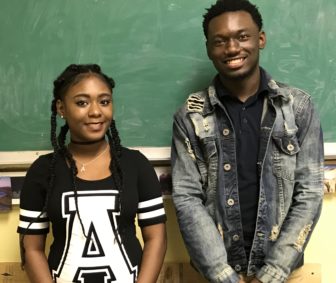
Currently, the program runs five programs which include:
• Three cohorts: Spring UP! (grades nine-12), Big Spring (grades five-eighth), Junior Spring (grades two-four)
• Parenting program Baby University (babies zero-three)
• College Spring for graduates.
Thiessen said the program could use more community volunteers to spend more time “with the kids one-on-one to work on their math, writing and reading skills.
Thiessen said she feels good about the resources they are able to give to their current students, but their waiting lists are bursting with referrals that the program can’t accept at this time.
She said they want to expand the program by starting a new cohort this August and more cohorts in the future to serve more students in Coahoma County.
The program received funding from churches, businesses, and individuals locally and all over. They also received funding from foundations such as the Community Foundation of Northwest Mississippi, Walton Family Foundation, and the Phil Hardin Foundation.
The sources of income for the fiscal year of 2015-2016 include: 3 percent from government, 7 percent from corporations, 15 percent from churches, 21 percent from individuals, and 54 percent from foundations.
For that year, Big Spring received $88,000 (22 percent); Junior Spring received $75,000 (19 percent); Little Spring received $80,000 (20 percent); Baby University received $84,000 (21 percent); and the organization itself received $74,000 (18 percent).
The group’s pamphlet states that 82 percent of Spring Initiative’s budget is spent on program expenses that directly impact the children and families.
